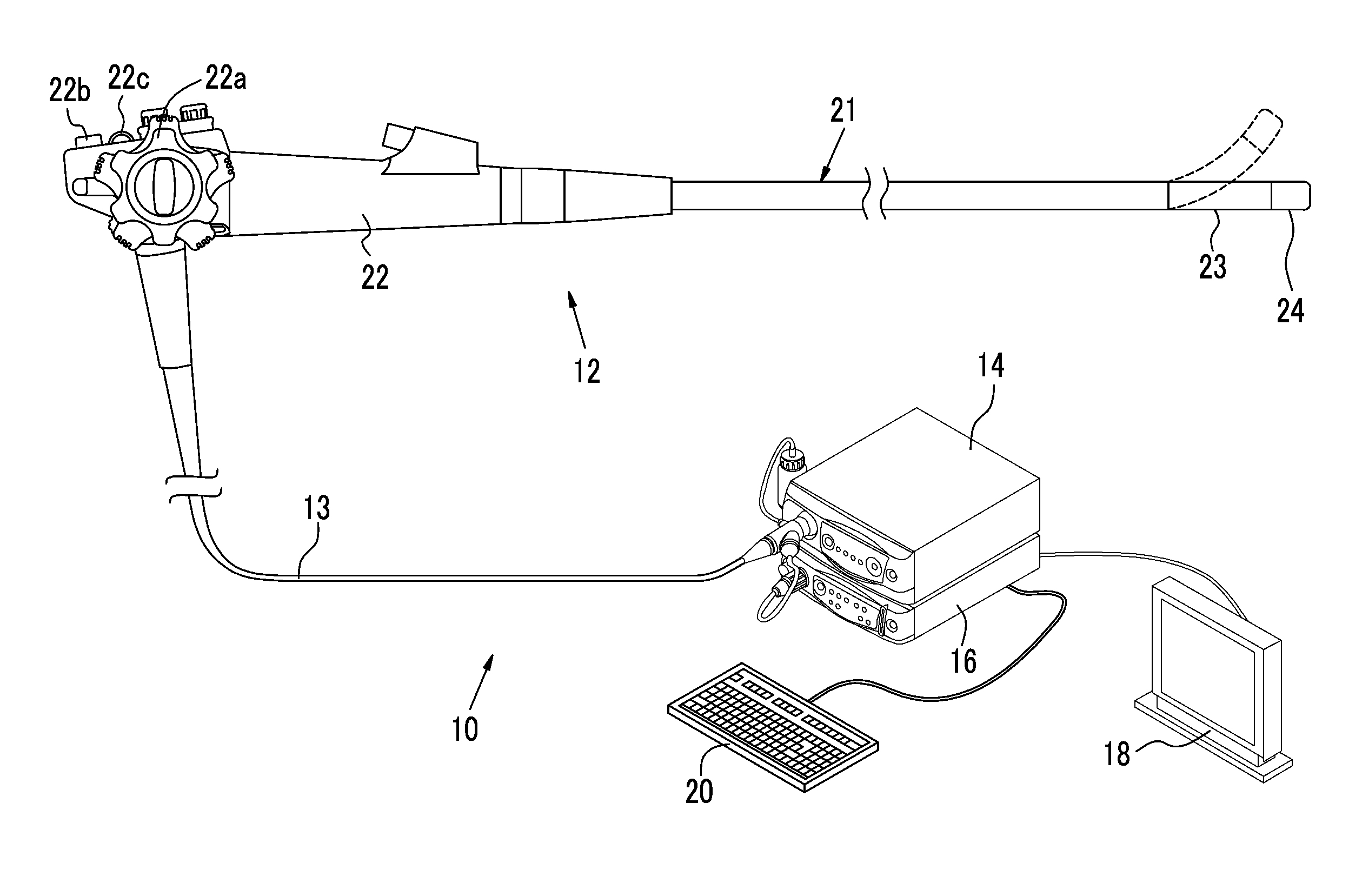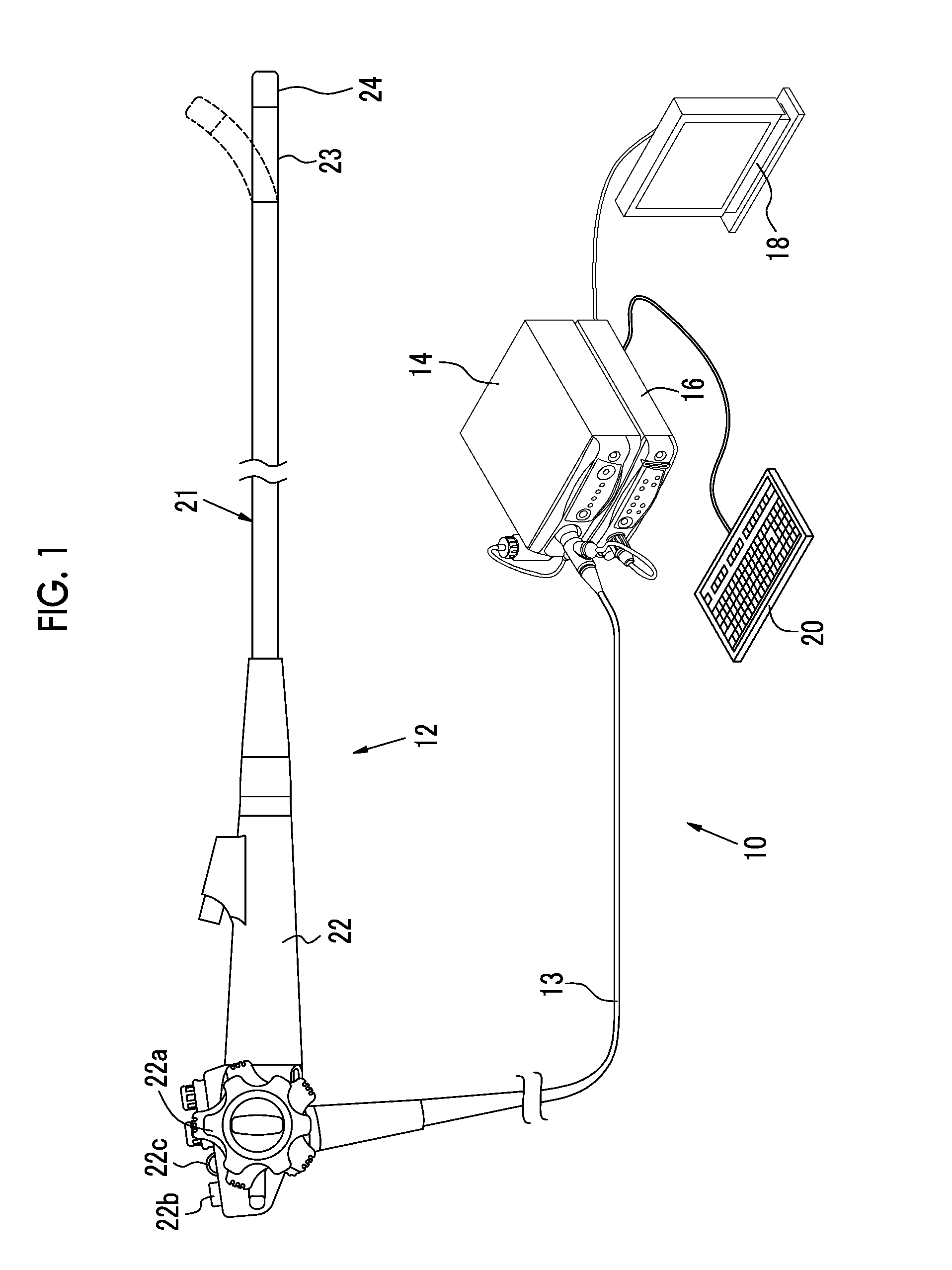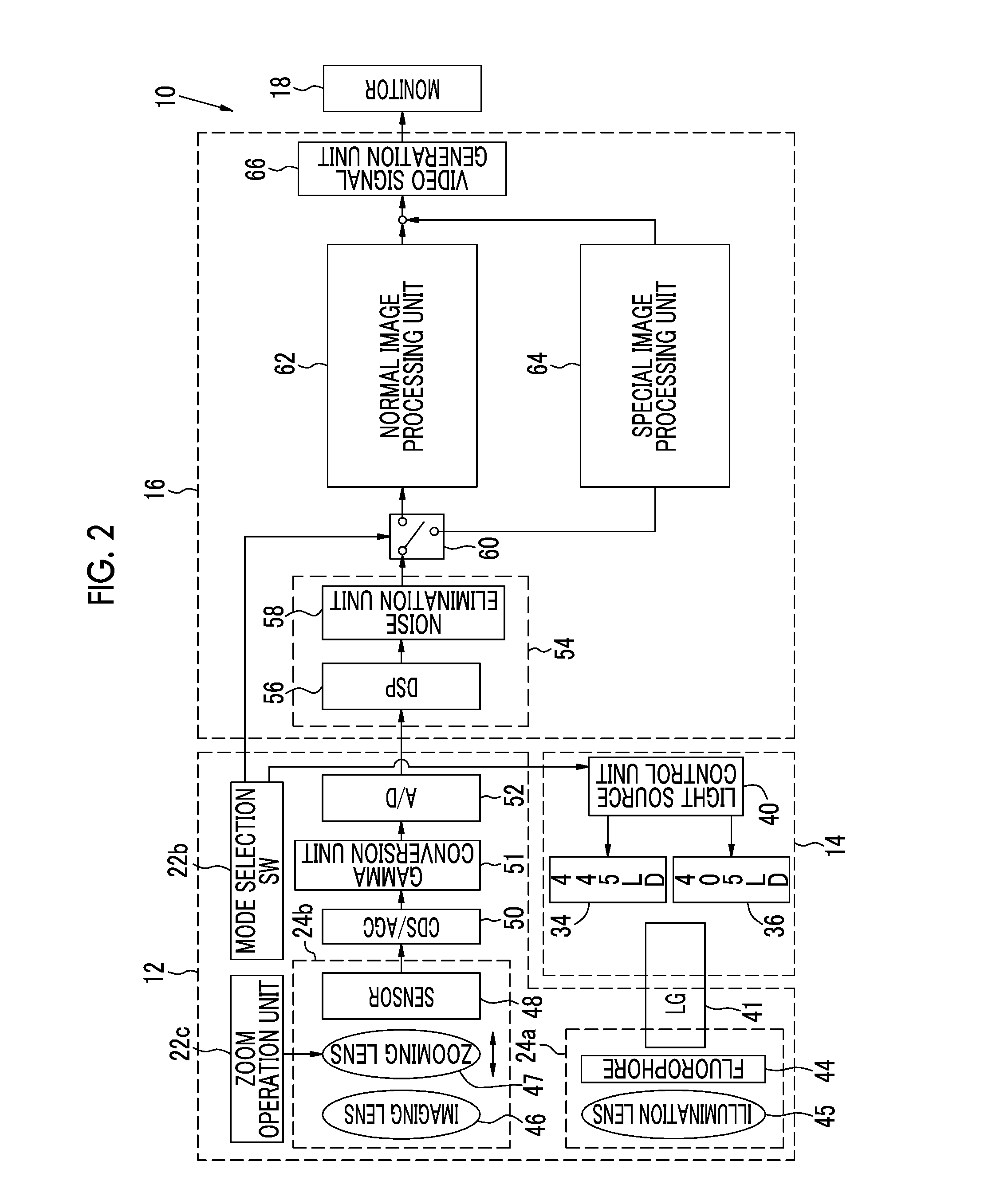Image processing device and operation method therefor
- Summary
- Abstract
- Description
- Claims
- Application Information
AI Technical Summary
Benefits of technology
Problems solved by technology
Method used
Image
Examples
first embodiment
[0043]As shown in FIG. 1, an endoscope system 10 of a first embodiment has an endoscope 12, a light source device 14, a processor device 16, a monitor 18, and a console 20. The endoscope 12 is optically connected to the light source device 14 and electrically connected to the processor device 16 through a universal cord 13. The endoscope 12 has an insertion portion 21 which is inserted into a specimen, an operation portion 22 which is provided in a base portion of the insertion portion, and a bending portion 23 and a tip portion 24 which are provided on the tip side of the insertion portion 21. The bending portion 23 is bent by operating an angle knob 22a of the operation portion 22. The tip portion 24 is directed in a desired direction with a bending operation.
[0044]The operation portion 22 is provided with a mode selection SW 22b and a zoom operation portion 22c, in addition to the angle knob 22a. The mode selection SW 22b is used for a switching operation between two modes of a n...
second embodiment
[0115]In the first embodiment described above, although the RGB image signals are acquired simultaneously with the color sensor, in a second embodiment, the RGB image signals are acquired sequentially with a monochrome sensor. As shown in FIG. 15, a light source device 14 of an endoscope system 200 of the second embodiment is provided with a broadband light source 202, a rotary filter 204, and a filter switching unit 205, instead of the blue laser source 34, the violaceous laser source 36, and the light source control unit 40. The phosphor 44 is not provided in the illumination optical system 24a of the endoscope 12. The imaging optical system 24b is provided with a monochrome sensor 206 with no color filters, instead of the color sensor 48. Other parts are the same as those in the endoscope system 10 of the first embodiment.
[0116]The broadband light source 202 is a Xenon lamp, a white LED, or the like, and emits white light having a wavelength band from blue to red. The rotary filt...
third embodiment
[0121]In the endoscope system 10 of the first embodiment, the B image signal which is a narrowband signal including narrowband wavelength information of the blue laser beam and the violaceous laser beam is used to create the special image, and in the endoscope system 200 of the second embodiment, the Bn image signal which is a narrowband signal including narrowband wavelength information of blue narrowband light is used to create the special image; however, in a third embodiment, a blue narrowband image signal is generated by spectral calculation based on a broadband image, such as a white image, and a special image is generated using the blue narrowband image signal.
[0122]In the third embodiment, white light which is broadband light is illuminated instead of special light in the special observation mode of the simultaneous endoscope system 10. As shown in FIG. 17, in a spectral calculation unit 300 provided between the image processing switching unit 60 and the special image proces...
PUM
 Login to View More
Login to View More Abstract
Description
Claims
Application Information
 Login to View More
Login to View More - R&D
- Intellectual Property
- Life Sciences
- Materials
- Tech Scout
- Unparalleled Data Quality
- Higher Quality Content
- 60% Fewer Hallucinations
Browse by: Latest US Patents, China's latest patents, Technical Efficacy Thesaurus, Application Domain, Technology Topic, Popular Technical Reports.
© 2025 PatSnap. All rights reserved.Legal|Privacy policy|Modern Slavery Act Transparency Statement|Sitemap|About US| Contact US: help@patsnap.com



